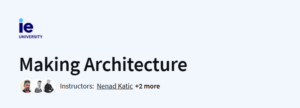What you will learn in Philosophy, Science and Religion: Science and Philosophy Course
Science and Religion in Conflict: Explore the philosophical analysis of the relationship between science and religion, examining whether they are compatible or incompatible.
Neuroscience and Free Will: Delve into experiments that question the existence of free will and consider criticisms of these interpretations.
Creationism and Evolutionary Biology: Investigate the debate between creationism and evolutionary biology, assessing whether creationism is a legitimate scientific theory.
Scientific Claims and Absolute Truths: Examine whether scientific claims constitute absolute truths and the implications of this for our understanding of science.
Program Overview
Neuroscience and Free Will
⏳ 3 hours
- Investigate experiments that question the existence of free will and consider criticisms of these interpretations.
Are Science and Religion in Conflict?
⏳ 3 hours
- Analyze whether science and religion are inherently at odds, or if they can coexist and inform one another.
Creationism and Evolutionary Biology
⏳ 3 hours
- Examine the controversy between creationism and evolutionary biology, assessing their respective merits as scientific theories.
Do Scientific Claims Constitute Absolute Truths?
⏳ 3 hours
- Explore whether scientific claims can be considered absolute truths and the philosophical implications of this belief.
Get certificate
Job Outlook
- Science and Religion in Conflict: Explore the philosophical analysis of the relationship between science and religion, examining whether they are compatible or incompatible.
- Neuroscience and Free Will: Delve into experiments that question the existence of free will and consider criticisms of these interpretations.
- Creationism and Evolutionary Biology: Investigate the debate between creationism and evolutionary biology, assessing whether creationism is a legitimate scientific theory.
- Scientific Claims and Absolute Truths: Examine whether scientific claims constitute absolute truths and the implications of this for our understanding of science.
Specification: Philosophy, Science and Religion: Science and Philosophy
|
FAQs
- The course is designed for beginners and doesn’t assume prior expertise.
- Complex topics are introduced step by step with accessible explanations.
- Scientific ideas are discussed conceptually, not through advanced equations.
- Philosophical arguments are broken down into practical, real-world examples.
- A curious and open mindset is all that’s needed to benefit from the course.
- Science provides methods for testing and observing the natural world.
- Philosophy helps interpret what those scientific findings mean in a broader context.
- Together, they address both “how” things happen and “why” they matter.
- Philosophy raises questions about ethics, meaning, and implications of science.
- This integration fosters a deeper, more critical way of thinking.
- Yes, the course explores areas where science and philosophy overlap and sometimes clash.
- Topics like human consciousness, morality, and the scope of science are addressed.
- The aim is not to give final answers but to equip you with tools to think critically.
- Controversial issues are presented in a balanced, academic way.
- Learners gain confidence in forming their own well-reasoned viewpoints.
- Critical thinking and reasoning skills are transferable to any profession.
- It helps in analyzing complex problems from multiple perspectives.
- Useful for careers in education, research, policy-making, or communication.
- Enhances your ability to evaluate arguments in reports, debates, or workplace discussions.
- Employers value people who can balance evidence-based thinking with ethical reasoning.
- This specific course in the series emphasizes the relationship between science and philosophy.
- Religion is addressed only when it intersects with these themes.
- The goal is to understand how science and philosophy complement or challenge each other.
- The course remains academic and avoids promoting any particular belief system.
- Learners engage with ideas objectively, rather than from a faith-based perspective.





